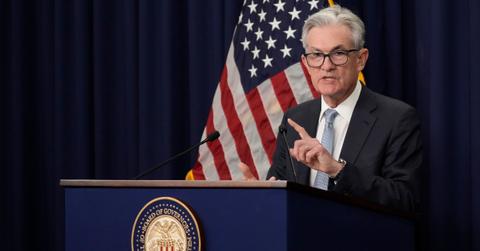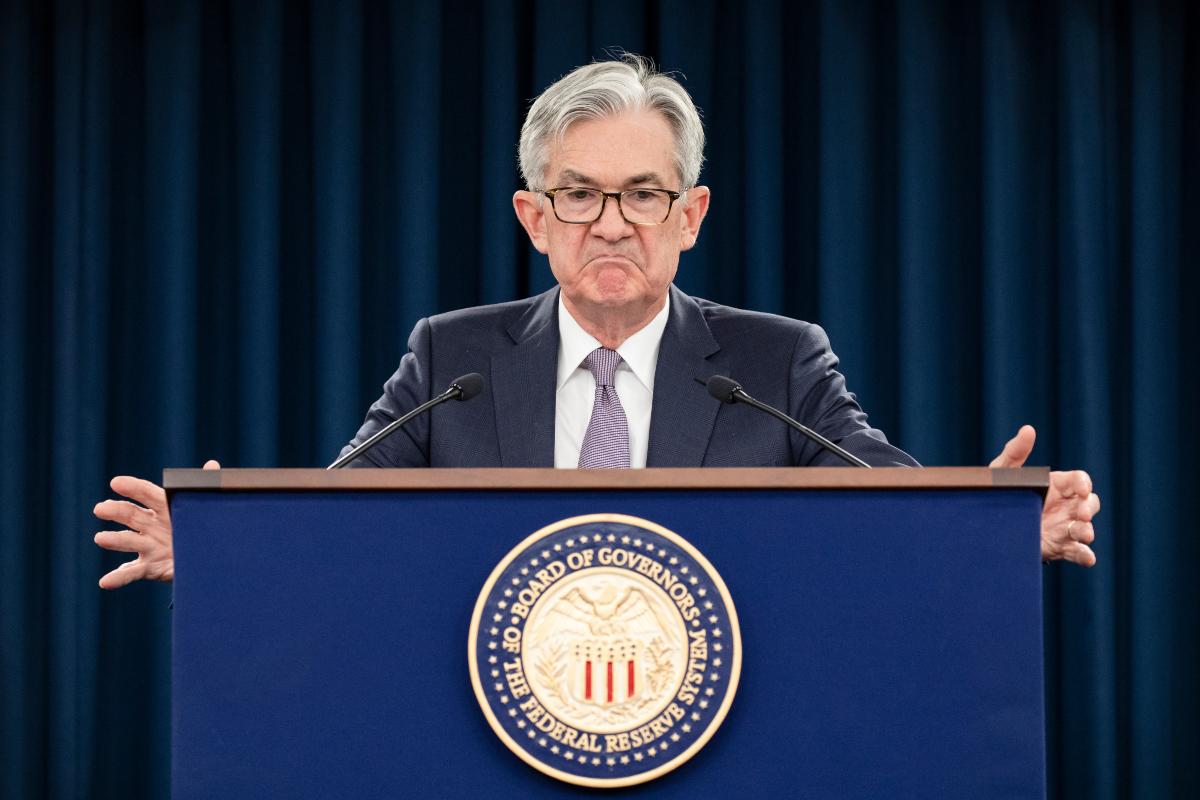Interest Rates Would Go a Lot Higher as Fed Covers Its Historic Mistake
Fed Chair Jerome Powell has announced a 75 basis point rate hike, the biggest since 1994. How high will interest rates go in 2022?
June 16 2022, Published 8:14 a.m. ET
On June 15, the U.S. Federal Reserve announced a 75 basis point rate hike. It was the third rate hike of the year and the first hike of that quantum since 1994. Before this, the Fed had raised interest rates by 25 basis points in March and 50 basis points in May.
A 75 basis point rate hike isn't common, but neither is an 8.6 percent inflation. The Fed has indicated that it will raise rates by 50 or 75 basis points at its July meeting also. How high will interest rates go in 2022?
The Fed made a mistake in delaying rate hikes.
Ben Bernanke, who was the Fed chair during the 2008 Global Financial Crisis, thinks that the Fed made a mistake by delaying interest rate hikes. While inflation was on an uptrend in the first half of 2021, the Fed continued with its accommodative monetary policy and called inflation “transitory.”
By November 2021, the U.S. Central Bank changed its mind and Fed Chair Jerome Powell said that the word transitory needs to be retired. The same month, the Fed started tapering or slowing its monthly bond purchases. The bond-buying eventually ended in the first quarter of 2022 and then the Fed embarked on rate hikes.
Powell raised interest rates by 75 basis points.
After U.S. inflation rose by a worse-than-expected 8.6 percent in May, the pressure was building on the Fed to act swiftly and decisively. In its release after the FOMC meeting, the Fed said that it “is highly attentive to inflation risks.” It blamed “supply and demand imbalances related to the pandemic, higher energy prices, and broader price pressures” for high inflation.
How high will interest rates go?
U.S. interest rates are set to go much higher from these levels. After the Federal Reserve’s meeting in June, the dot plot showed that the median year-end projections of the committee members are 3.4 percent. The projection is 1.5 percentage points above the March 2022 dot plot. Also, the projection for the federal funds rate at the end of 2023 has been lifted to 3.8 percent, which is 1 percentage point higher than what it was in the March dot plot.
This would mean many more rate hikes in 2022 as the dot plot calls for another 1.75 percent rate hike in the year. If inflation doesn't drop significantly by the end of the year, the Fed might need to raise rates much more in 2023 than what the dot plot currently calls for.
The Fed is struggling to tame inflation.
The Fed also admitted to “difficulties” as it tries to tame inflation. The rise in energy prices has been a key driver of high inflation but unfortunately, the Fed’s interest rate hike won't have much impact on rising oil and gas prices. Secondly, the rate hikes won't help address the global supply chain issues and some argue it could also make the supply worse. Companies might slow investments amid the rate hikes.
Most economists agree that Fed’s rate hikes will help tame U.S. inflation, which is now at the highest level since 1981.
How do rising interest rates impact you?
Rising interest rates, especially of the magnitude that we’re seeing in 2022, impact most people. If you're an adjustable-rate mortgage borrower, you would already have seen an increase in your payments. Mortgage rates are at multi-year highs and are set to go higher as the Fed continues to raise rates.
However, if you are a saver, and have saved in debt instruments like CDs, you would have a higher interest. In 2021, CD interest rates dipped to record lows amid the fall in interest rates. That said, even the best CDs won't help you beat inflation.
Even bond funds could see more price erosion since bond prices are inversely related to interest rates. I Bonds could be one investment option to beat inflation, especially if you're willing to invest your money for the long term.


